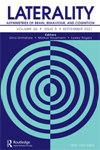When Silence Said Everything
IF 0.9
4区 心理学
Q4 PSYCHOLOGY, EXPERIMENTAL
引用次数: 0
Abstract
Reading X González’s, March 24, 2018, “March For Our Lives” speech—her words and silences—as an entry point into what I term a crip theory of trauma, this essay argues that the dominant narratives about and around Post Traumatic Stress Disorder (PTSD) say more about the compulsivity of the “proper” citizen subject than they do the actual embodied experience and debilitation of trauma itself. The text reconceptualizes trauma narratives, like González’s, through critical disability studies to argue that certain cripistemologies—or crip ways of knowing—trauma arise that are not otherwise available or readily accessible. Most notably, by rejecting dominant pathologizing forces and embracing crip ways of knowing, this analysis brings forth a new working definition of trauma, as an embodied, affective structure. These ways of knowing offer crucial insights for efforts to grapple with the ongoing forms of trauma enacted and perpetuated across the globe, and are particularly urgent against a political and cultural landscape that, as my reading of González’s speech makes clear, in many ways refuses to hear, see, and learn from the knowledge that trauma produces.当沉默说明一切
阅读X González于2018年3月24日发表的“为我们的生命游行”演讲——她的话语和沉默——作为进入我所谓的创伤理论的切入点,本文认为,关于创伤后应激障碍(PTSD)的主流叙事更多地讲述了“适当的”公民主体的强迫性,而不是创伤本身的实际体现体验和衰弱。文章重新定义了创伤叙事,比如González,通过批判性的残疾研究,认为某些cripistemologie(或cripistemologie)——或者说是认识创伤的蹩脚方式——产生了,否则就无法获得或容易获得。最值得注意的是,通过拒绝占主导地位的病态化力量,接受蹩脚的认知方式,这一分析提出了一种新的创伤的工作定义,作为一种具体化的情感结构。这些认识的方式为努力应对在全球范围内制定和延续的持续形式的创伤提供了至关重要的见解,尤其迫切地反对政治和文化景观,正如我对González演讲的阅读所表明的那样,在许多方面拒绝听到,看到和从创伤产生的知识中学习。
本文章由计算机程序翻译,如有差异,请以英文原文为准。
求助全文
约1分钟内获得全文
求助全文
来源期刊

Laterality
Multiple-
CiteScore
3.60
自引率
7.10%
发文量
26
期刊介绍:
Laterality: Asymmetries of Body, Brain and Cognition publishes high quality research on all aspects of lateralisation in humans and non-human species. Laterality"s principal interest is in the psychological, behavioural and neurological correlates of lateralisation. The editors will also consider accessible papers from any discipline which can illuminate the general problems of the evolution of biological and neural asymmetry, papers on the cultural, linguistic, artistic and social consequences of lateral asymmetry, and papers on its historical origins and development. The interests of workers in laterality are typically broad.
 求助内容:
求助内容: 应助结果提醒方式:
应助结果提醒方式:


